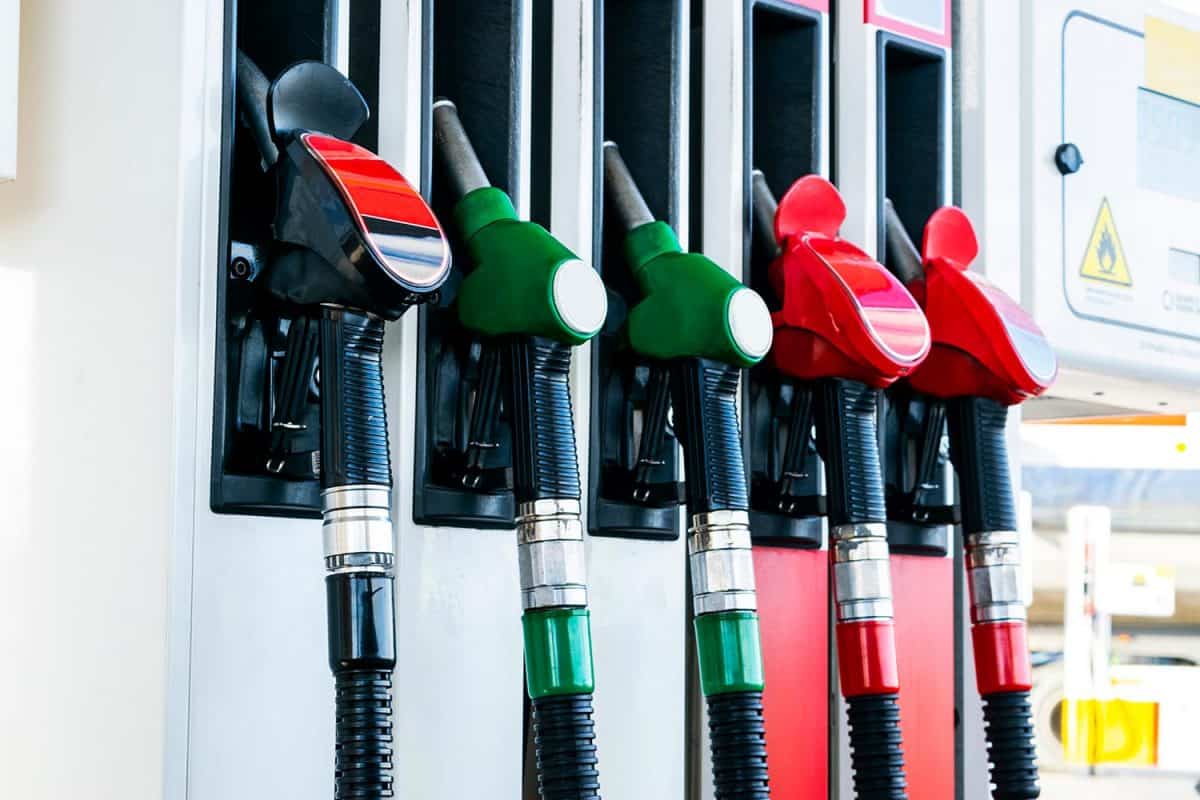During the cold season, a lot of households use their heating furnaces to keep their homes warm and cozy. However, some homeowners may face the challenge of running out of heating oil just before using their furnaces. Fortunately, we have researched ways to keep your furnace running without having to spend the night shivering in freezing cold weather.
If you are running out of heating oil and you need a quick replacement, you can use diesel fuel as an appropriate substitute. Diesel fuel can easily be bought at your local gas stations and it also works for most furnace systems. They are both a midweight distillation of petroleum and can produce nearly the same amount of heat, making them an acceptable substitute for heating oil if you are in a bind.
There are more details that you should know about using diesel for your oil furnace and we have compiled all of them in this article. Continue reading to learn more about how this fuel can work for your home's heating system.

Is Furnace Heating Oil and Diesel The Same?
Technically, they are used for completely different purposes but home heating oil no. 2 and diesel fuel are quite similar. In some cases, one of them can be used as a substitute in a quick pinch, like when there is an unexpected shortage in supply. This is because heating oil and diesel share almost the same heat-giving properties.

However, even if this is the case, using diesel on your furnace for long-term use is not recommended. It cannot be used permanently on your furnace because diesel fuel is not formulated for this use. This is because diesel fuel burns hotter than heating oil and it may damage parts of your furnace, causing more problems for your home heating system instead of fixing it.
Furthermore, using diesel fuel on your furnace for long-term use is not cost-effective because diesel is much more expensive due to road taxes. You may end up spending more when you use diesel rather than just simply using the correct heating oil.
Storing Fuel for Home Use
If you have an oil furnace, it is highly suggested to always have a moderate amount of diesel fuel on hand for emergency situations. When storing diesel in your home, make sure that it is stored in a correct, well-sealed, and labeled fuel container.
Do not store diesel fuel for more than six months at a time because the fuel quality degrades over time, making it unsafe for use. In some cases, you may add fuel additives to further prolong the lifespan of your stored diesel fuel. However, it would be easier and much safer to simply replace your stock every six months.
Another thing that you should know is that diesel only works for furnaces that run with heating oil No. 2. Most home furnaces make use of this oil, and No. 2 denotes the weight and grade of the oil. Remember to check your furnace for the correct oil that you are using before attempting to use diesel as a substitute.
How Do I Add Diesel To My Oil Furnace?
Before you decide to add diesel to your oil furnace, it would be wise to check if you have run out of heating oil. Ensure that your furnace is in good working order and that there are no other issues like a malfunctioning limit switch or your float gauge is not stuck.
Once you have confirmed and checked that your furnace has indeed run out of heating oil, you may start filling up your tank with diesel fuel.
Here are the steps on how you can add diesel to your furnace:
- Get a fuel container that can hold at least 10 gallons of fuel in it. Pick a yellow fuel container to indicate that the contents are diesel fuel.
- Head over to your nearest gas station and fill your container with at least 5 to 10 gallons of diesel fuel. The amount that you need depends on how long you will be using diesel as a heating fuel substitute. Since there is no maximum limit to the amount of diesel you can use in your tank, a good rule of thumb is to use about 5 gallons of diesel to heat your home for a day or two.
- Turn off your furnace before adding diesel to your oil tank. Do not fill up your oil tank with the furnace still running.
- Open your oil tank's fill pipe and pour the appropriate amount of diesel into the tank.
- Give your fuel and your tank about 10 minutes to let everything settle. This will allow any sediment and other impurities to settle at the bottom of the tank, making it easier for your fuel line to access clean fuel.
- Restart your furnace. Doing this is dependent on how your furnace works and sometimes, you may need to press the reset button several times to help the fuel bleed through the lines.
- Do not forget to order heating oil for your furnace. Remember that diesel fuel should not be used on your oil furnace for long-term use so it would be best to stock up and revert to using the appropriate heating oil for your system.
How Long Will 5 Gallons of Diesel Last?

Generally, the length of time diesel fuel will last greatly depends on how big your home is and how warm you want it to be.
If you've put about 5 gallons of diesel fuel in your oil furnace's tank, it would be safe to say that it should last you a whole day of heating. Going up to about 10 gallons should last you about two days and it should be enough time until your replacement heating oil should arrive.
However, if your house is more on the bigger side and you want it a little warmer than usual, consider getting more than 10 gallons of diesel fuel to heat your home comfortably. In general, the usual amount of heating oil that you use for your home should last the same as diesel fuel, and this is a good marker of how much fuel you should put in your tank.
Are There Other Alternative Fuels I Can Use?
If by some chance you cannot get a hold of diesel fuel for your furnace, there are other options you can consider. Another option you can look into is using kerosene as a quick substitute for heating oil.
Truthfully, many furnaces are capable of burning either heating oil or kerosene, but manufacturers will always suggest that you use the correct heating oil for your systems. However, if you are in a bind and you are in need of fuel to burn for your furnace, kerosene will work just as well.
The only caveat here is that kerosene burns a little bit hotter than heating oil and it has a greater fire and explosion risk when used. If you are planning to use it, make sure that you follow all safety protocols to prevent any untoward events from happening.
Using kerosene for your furnace is the same as adding diesel to your tank. While it is doable, remember that it can only be used as a quick alternative replacement and not for long-term use. Heating oil is still superior and must be used in your furnace the majority of the time.

Why Are Heating Oil And Diesel Priced Differently?
The price of heating oil and diesel is primarily determined by the price of crude oil in the market. In most cases, they do start off being priced similarly because of their composition.
However, other costs like taxes and delivery fees can greatly affect the value of these fuels. This is the reason why heating oil and diesel are priced differently, and one may be more cost-efficient than the other.

Final Thoughts
Having your furnace heat up your home during the cold, winter months is an absolute necessity. However, you may find yourself running out of heating oil in some emergency cases like bad weather or sudden supply shortage. Fortunately, this problem can be easily fixed by using diesel fuel as a substitute for heating oil.
Diesel fuel burns just as hot as regular heating oil, but even if this is the case, it should be noted that it cannot be used as a permanent or long-term supply for your furnace. Always remember that diesel fuel can simply be used as a quick substitute in an emergency and to always use the correct heating oil for your furnace.
Are you looking for more topics about generating power for your home? We may have a few articles that will interest you:
